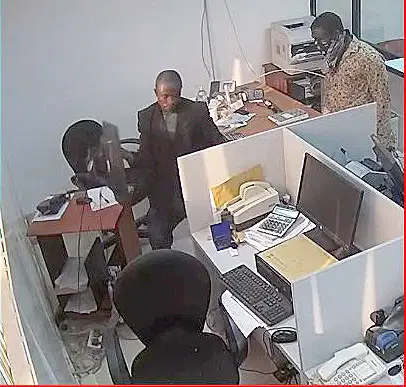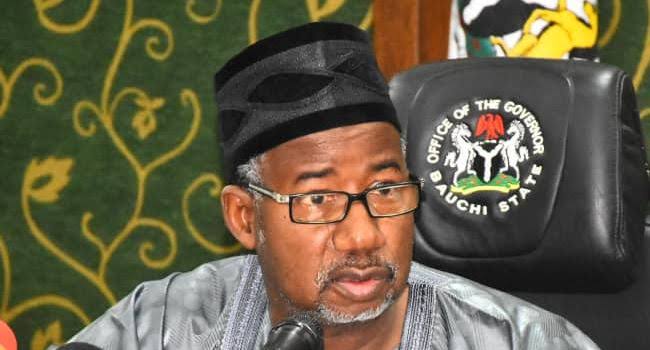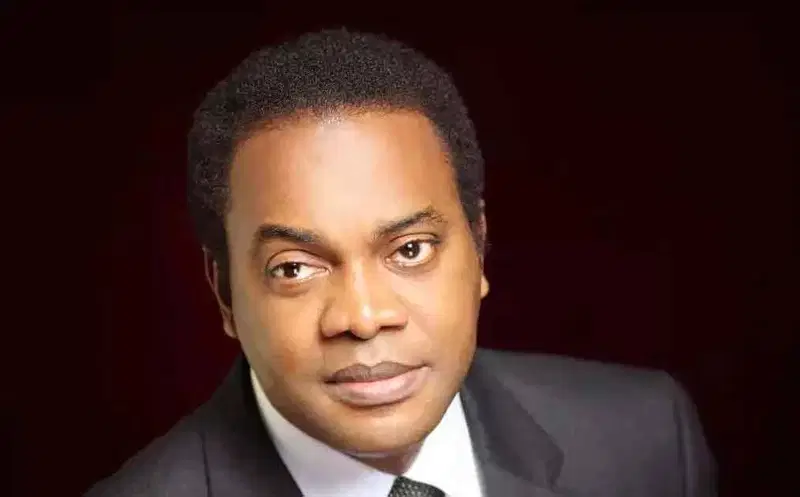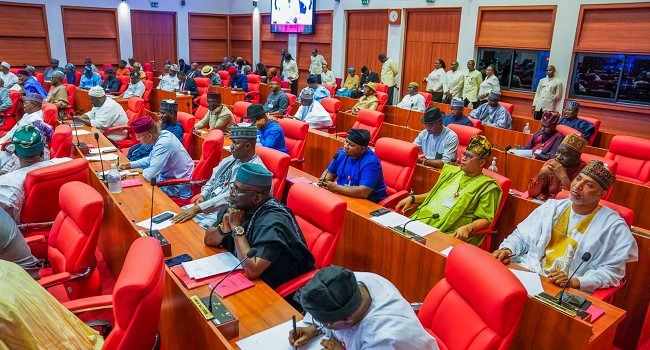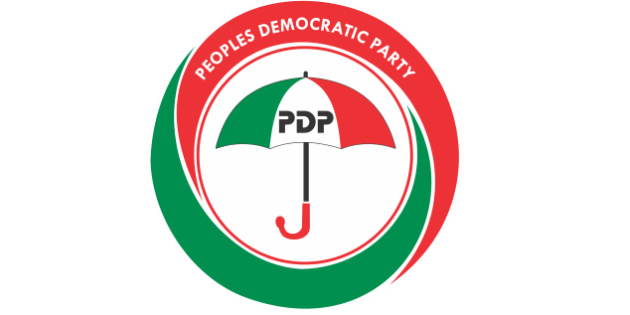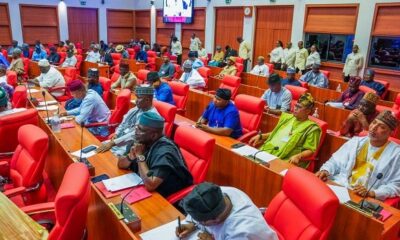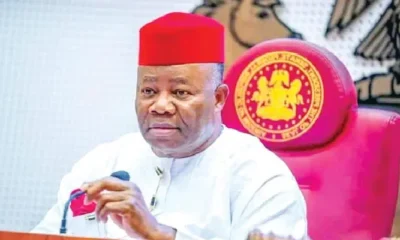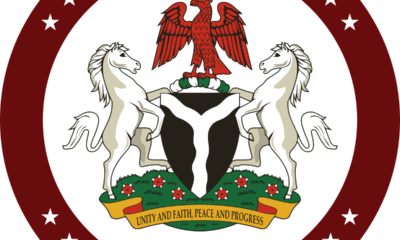Business
Tax reform bills: Our concerns and suggestions by stakeholders

Various interest groups and government agencies on Wednesday expressed support for the four tax bills currently being considered by the National Assembly, but voiced their concerns over various aspects of the bills which they want refined for effective tax administration in the country.
The Nigeria Liquidified Natural Gas (NLNG), Nigeria Customs Service (NCS), Kano state government, the Supreme Council for Sharia in Nigeria, Federal Ministry of Industry, Trade and Investment, Association of National Accountants of Nigeria, Revenue Mobilisation, Allocation and Fiscal Commission among others expressed concern about some provisions of the bills which they agreed will enhance the nation’s revenue profile.
Customs warn against merger
Presenting the position of the Nigerian Customs Service, it’s Comptroller General, Bashir Adewale Adeniyi cautioned against merging the Service with the tax authorities as proposed by the tax bills.
Adeniyi expressed concern that the proposals might threaten the existence of the Customs which he said was not in the interests of the country, adding that the Customs Service should not be subsumed within the tax system but should work independently due to the nature of its responsibilities.
He said the Customs should rather collaborate with the tax authorities for enhanced revenue generation, while also raising concerns about jurisdictional conflicts.
He said, “I will make reference to some few sections where we observed the jurisdictional conflicts between the provisions of the Joint Revenue Board bill. Section 23 and 29 of the bill, and section 41A of the Joint Revenue Bill. Basically, these are jurisdictional conflict issues.
“In the Nigerian Revenue Service Establishment Bill, section 16 will completely legislate Nigeria Custom Service out of existence, if you pardon my words. So we raised our objection.Our observation is also on section 4S. In section 4S, there is also another omnibus provision. This particular provision gives the proposed NRS oversight functions over all taxes and levies.
“We are worried that this new law is seeking to override all previous laws that were done to address issues regarding the economy.”
He expressed worry about the interchangeability of the words ”tax” and “duties” in the proposed laws.
“The substitution of the word ‘tax’, the substitution of the word ‘duty’ by ‘tax’ in very many areas of the bill seems to overlook the difference and the objective which these two tools can do in an economy.
“Our understanding is that tax is used to generate revenue for governments, and it’s also used to distribute wealth. However, duty goes beyond that. Duty is more of a fiscal policy tool, an instrument by governments to encourage industrialization, to discourage environmental pollution, and to put in some kind of public health order,” he said.
He noted that the customs have specialized duties.
“There are specialized customs functions including valuation, classification, and origin determination. They will show measurable deterioration following integration with general tax authorities. So once we integrate them, these specialized areas will suffer.
“ We therefore made some recommendations and the principal recommendation we made was that we should encourage collaboration,
integration of operations between customs and the tax authority, not to abolish customs or not to repeal a law because we want to do another law.
Minister of State for Industry, Trade and Investment, John Enoh, also raised some concerns about some provisions of the bills
He said, “The Federal Ministry of Industrial Trade and Investment, agrees completely with the tax reform bills, but has observations particularly on the Nigeria tax bill 2024 on two areas.
“And these two areas apply to both mandates that are presently prevalent in the ministry. The mandate on industry and the mandate on trade and investment.
“In Section 1982 and 1983. I’d like to call attention to the fact that the Export Processing Zones Associations organised a conference in Lagos last week. The Minister of Trade and Investment was present and it was a very chaotic meeting and all of that has to do with the reactions and the commentaries on the sections 1982 and 1983 and section 57 and some particular clauses in the second schedule.
“The hope of the ministry is that these associations working with the Federal Inland Revenue Service will be able to find a common ground and the committee will assist in harmonizing this because there are issues of tax exemptions and tax incentives that are implicated in these sections and it is important that Nigeria’s industrial environment and growth is not affected by the law when it comes out.
“The second deals directly with industry. And I think that sitting here, I’ve listened to quite a number of interventions having to do with the first schedule, line eight of the Nigerian tax bill. And all of that concerns CAFA, the certificate of acceptance of fixed assets.
“And the concern of the ministry is simple. It’s on emphasizing the significance of this certificate for new and additional investments in granting capital allowance and to seek the indulgence of the committee that this be captured.
“The industrial development department has in its engineers and experts in physical sciences that are best positioned to do physical examination of these new investments in order that there’s no reliance completely on receipts, invoices and so on.
“ It is the hope of the Ministry of Industry, Trade and Investment that the committee would be able to respond to these two issues
in order to allow the ministry to remain competitive both in supervising and monitoring industrial growth and development and in encouraging manufacturers, those who want to invest in our country, not to be adversely affected,” Enoh said.
The Revenue Mobilization, Allocation and Fiscal Commission also expressed full support for the bill.
He said “The Revenue Mobilization, Allocation and Fiscal Commission is 100% in support of this bills if this is what it will take to take Nigeria out of the present situation we are in.
“Our revenues are too low. Our laws are archaic. And I think this is a very bold move by Mr. President. And I’m sure the National Assembly will do justice to this bill. The only observation after vigorous discussion
that the commission had was during a discussion with the Senate Committee of Elders, with Professor Tayo, the FIRS Chairman, and myself.
“We discussed some gray areas, and Professor Tayo promised that they will look at it and get back to you. And there was also another engagement with the Governor’s Forum on the issue of VAT and VAT distribution. There was an agreement with the Governor’s Forum, myself, Professor Tayo, and FIR’s Chairman. So Revenue, Mobilization, Allocation, and Fiscal Commission takes this position,” he said.
The Fiscal Responsibility Commission sought amendments to the timeline for submitting audited statements of accounts for the year.
He said, “for us at the Fiscal Responsibility Commission, we’ve gone through the four tax bills and we are convinced that the bills when passed and signed into law will strengthen the macroeconomic stability of our nation.
“These laws will definitely improve on the objectives as set out in section 16 of the 1999 constitution as amended. Our commission has found no objection whatsoever with the four bills because they are in tandem with the spirit and intendment Fiscal Responsibility Act 2007.
“We have found these bills that will strengthen modernization and harmonization of all the tax heads, which are well over 49 and bring them to about 10 laws if eventually passed. It will make for easier operation of the tax system.
“It will make collection a lot easier. It will also support small businesses. We also find that it will also support the low-income earners, which will reduce poverty.
“We have some observations. We have some observations in the area of confinyct with Fiscal Responsibility Act number 31 of 2007. We refer particularly to the Joint Revenue Board Bill. Our observations are the timeline.
“The timelines given in some of the provisions will contradict and will not help for easy management of the fiscal policies of the government.
“Section 18.1 of the bill. The bill I am referring to here is the Joint Revenue Board bill. The board shall not later than 30th September in each year submit to the Minister a report of his activities during the preceding year and shall include in such a report the audited accounts of the board.
“The Commission proposes an adjustment to
the timeline contained in the section to read not later than 30th April in each succeeding financial year.
“This amendment will make the report to be submitted in good time to enable the Minister
to include the same in the report required under Section 49.1 of FRA 2007, which provides that the federal government shall publish its audited financial statement not later than six months following the end of each fiscal year.
“The second observation is on the Revenue Service Establishment Bill. Section 24 of the proposed bill provides that the service shall not later than 30th September in each year, submit an estimate of his income and expenditure for the succeeding year for the purpose of appropriation to the National Assembly.
“For the purpose of avoiding conflict that may arise in future, it’s our considered opinion that it’s important that this submission is made not later than 30th of August of each succeeding year, in order to align with section 21, sub one and two of FRA.
“This clearly provides and is critical that the government corporation and the agencies of government listed in the schedule to this act shall not later than six months from the commencement of this act and for every three financial years thereafter, of each second year, cause to be prepared and submitted to the minister their schedule estimates of revenue and expenditure for the next two years.
“So what we are talking about here is to make for planning so that the National Assembly can get this.”
Manager, Tax System of NLNG, Clement Okoro who said the reforms will be of great benefit to the nation, but wants export from Nigeria to be zero rated to allow export from the country to be globally competitive.
He said the Stamp Duties component of the Nigeria Tax bill should not be allowed. To conflict with other sections of the law, saying items already subjected to Value Added Tax should not be subjected to stamp duty as it would amount to double taxation.
He also said that attempt should be made to incorporate all the executive orders into the law as some of the provisions covered by the Executive orders are being repealed by the bills under consideration as doing so will take away any ambiguity that may arise and dampen investors confidence.
Supreme Council for Sharia in Nigeria picks holes in two of the four bills (the Nigeria Tax Bills and the Nigeria Tax Administration Bill).
According to a memorandum submitted by the Council, the proposed tax reform in Nigeria will have far reaching negative implications on the poor and vulnerable Nigerians, adding that given the country’s economic reality, the reform will exercerbate the hardship faced by majority of Nigerians unless accompanied by complementary economic and social reforms.
The council said the government take steps to curb rising inflation to reduce high cost of living and improve overall governance, reduce the cost of governance, promote transparency and accountability and strengthen public financial management, while investing in infrastructure, science and technology using funds saved through good governance.
The council also want the government to implement successful reforma by training personnel in modern tax assessment qbd collection technologies and enhancing transparency and accountability inntax authorities at all levels.
They also opposed the proposed increase in VAT from 7.5 to 15 percent over six years, suggesting instead, a reduction of VAT 5 percent as well as the deletion of development levy component of the bills and reverting to status quo in the funding of TETfund, NIYDA ABF NASENI as contained in their establishment Act.
Also, the Kano state government said the tax retorm bills introduce comprehensive reforms to the nation’s tax system, addressing various aspects of economic, social, political and administrative governance, while also enhancing revenue generation, expand the nation’s fiscal space and establish a. More transparent and efficient fiscal system.
In its presentation signed by the Umar Mohammed Jalo, Permanent Secretary in the office of the Secretary to the State Government fault the use of the word derivation in the Nigeria Tax Administration Bill regarding VAT revenue, saying it was susceptible to manulipulation ans possible challenges at the stage of implementation.
It said the proposed restructuring of the distribution of VAT proceeds horizontally between States and local government based on a formularnif 60 percent derivation is a clear arrangement to favour some states where VAT able items originate or are produced and a disadvantaged to States to States where the items are consumed.
It said further that VAT is a consumption tax and the benefits of its proceeds should acrue more to areas where the VATable items are terminally sold and consumed than where they are originally produced.
It said there is a lack of accurate and credible data to base a fair and just distribution of VAT proceeds under the new bill, including the data from the Nigeria Bureau of Statistics used by the President Tax Reform Committee.
The Kano state government also said increasing VAT at a time when Nigerians are facing unprecedented cost of living will create more difficulties for families abs elevate their levels of vulnerability band deprivation.
While supporting the bills, the National Association or Nigerian Accountants (ANAN) expressed reservations with some. Provisions of the Nigeria Tax Bill and the Nigeria Tax Administration Bill, saying some provisions of the two bills were in conflict with the constitution
The Association, represented by Prof Abuchi also faulted the gradual extinction of TETfund by 2030, saying the agency need to continue as it has been doing a great job in helping to build infrastructure in the nation’s institutions.
-

 News2 days ago
News2 days agoNUJ FCT seeks partnership with Tayan Group on affordable housing, ultra-modern congress hall
-

 News1 day ago
News1 day agoCross River delegation didn’t stage walk out, insists RMAFC report presentation to continue
-
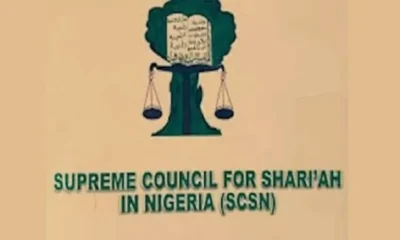
 News1 day ago
News1 day ago2027: We won’t accept compromised polls – Sharia Council to INEC
-

 News1 day ago
News1 day agoCAF bans Senegal coach, fines Senegal, Morocco after chaotic AFCON final
-

 News13 hours ago
News13 hours agoOmokri rejects Sowore’s Tinubu ‘Drug Lord’ defence
-
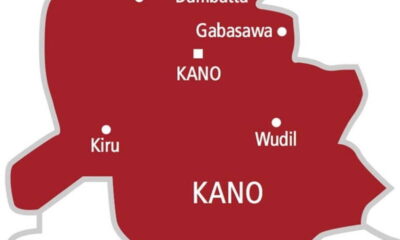
 News1 day ago
News1 day agoKano Govt vows amicable resolution to Emirate dispute
-

 Metro1 day ago
Metro1 day agoEight kidnapping victims rescued in Kaduna forest operation
-

 World News1 day ago
World News1 day agoUS Judge blocks Trump administration from detaining Minnesota refugees

